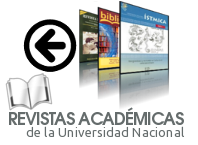El bienestar animal en las legislaciones de América Latina
Keywords:
Animal welfare, animal welfare in Latin America, international trade, national regulations, OIEAbstract
Animal welfare has become a very important topic in international trade. This results from the debate about its legitimacy within the framework of the World Trade Organisation (WTO) regimen and within commercial practice.
In Latin America, animal welfare is important in respect of trade, but also in the light of domestic requirements.
The methodology of this composed by three phases: 1) the research and analyses of official norms concerning animal welfare; 2) the checked of the information by national authorities; 3) the discussion and comparison (of) them with the OIE’s Guidelines and other standards. This study was realized at 30th August 2005 in OIE General Headquarters, Paris.
In general, Latin American regulation concerning animal welfare results from different causes and has different objectives. The causes leading to the development of animal welfare regulation are related to private commercial practice and the requirement of trade partners. Two types of current objectives were found: on the one hand domestic, and the other hand; international objectives. The principal differences between public regulation (national or international) are: 1) the methods of controlling animal welfare and 2) the use of certification as a means of confirming animal welfare measures.
Downloads
Published
How to Cite
Issue
Section
License
Licensing of articles
All articles will be published under a license:

Licencia Creative Commons Atribución-NoComercial-SinDerivadas 3.0 Costa Rica.
Access to this journal is free of charge, only the article and the journal must be cited in full.
Intellectual property rights belong to the author. Once the article has been accepted for publication, the author assigns the reproduction rights to the Journal.
Ciencias Veterinarias Journal authorizes the printing of articles and photocopies for personal use. Also, the use for educational purposes is encouraged. Especially: institutions may create links to specific articles found in the journal's server in order to make up course packages, seminars or as instructional material.
The author may place a copy of the final version on his or her server, although it is recommended that a link be maintained to the journal's server where the original article is located.
Intellectual property violations are the responsibility of the author. The company or institution that provides access to the contents, either because it acts only as a transmitter of information (for example, Internet access providers) or because it offers public server services, is not responsible.






